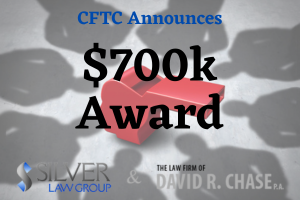 The Commodity Futures Trading Commission (CFTC) recently awarded a bounty of $700,000 to a whistleblower who voluntarily offered original information that caused an investigation leading to a successful covered action.
The Commodity Futures Trading Commission (CFTC) recently awarded a bounty of $700,000 to a whistleblower who voluntarily offered original information that caused an investigation leading to a successful covered action.
The unnamed individual first submitted their information in a Form WB-APP and provided significant assistance to the CFTC staff. This included key information in the case and interpretation of it for staff members, and all the information the staff requested. Their actions saved CFTC staff significant resources in the investigation. Continue reading
 SEC Whistleblower Lawyer Blog
SEC Whistleblower Lawyer Blog


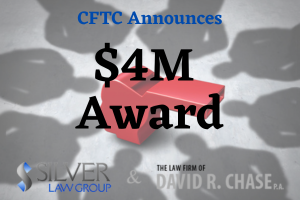 The
The 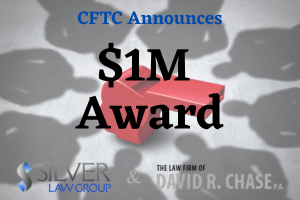 On August 8, 2024, the U.S. Commodity Futures Trading Commission (CFTC)
On August 8, 2024, the U.S. Commodity Futures Trading Commission (CFTC)  On June 17, 2024, the U.S. Commodity Futures Trading Commission (the “CFTC”) reached a $55 million settlement with Trafigura Trading LLC, marking a significant aggressive shift in the agency’s approach to whistleblower protections. This case sets a new precedent in the CFTC’s enforcement program and underscores the CFTC’s commitment to protecting whistleblowers.
On June 17, 2024, the U.S. Commodity Futures Trading Commission (the “CFTC”) reached a $55 million settlement with Trafigura Trading LLC, marking a significant aggressive shift in the agency’s approach to whistleblower protections. This case sets a new precedent in the CFTC’s enforcement program and underscores the CFTC’s commitment to protecting whistleblowers. 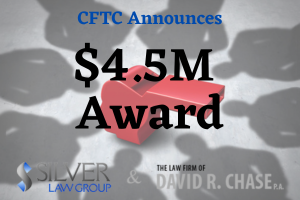 The Commodities Futures Trading Commission (CTFC) announced a whistleblower award of over $4.5 million for information and assistance that led to a successful enforcement action. The individual received an unspecified percentage of the monies collected in fines and sanctions.
The Commodities Futures Trading Commission (CTFC) announced a whistleblower award of over $4.5 million for information and assistance that led to a successful enforcement action. The individual received an unspecified percentage of the monies collected in fines and sanctions. 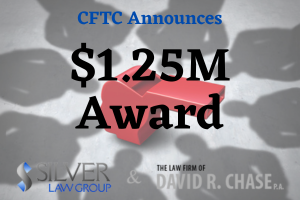 The latest $1.25 million award from the
The latest $1.25 million award from the  The
The 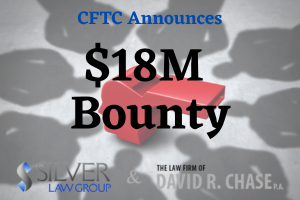 The Commodities Futures Trading Commission (CFTC)
The Commodities Futures Trading Commission (CFTC) 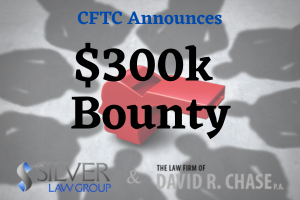 The Commodity Futures Trading Commission (CFTC)
The Commodity Futures Trading Commission (CFTC) 